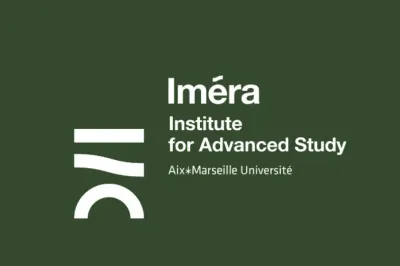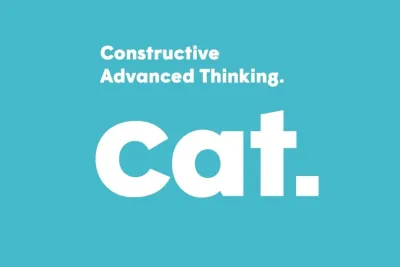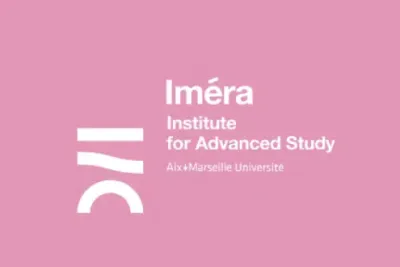For 2026-27 academic year, Iméra, the Institute for Advanced Study (IAS) of Aix Marseille Université, is opening six residency places for academic researchers, each lasting 5 or 10 months. Of these, the Fulbright / Iméra Chair in Migration Studies and the Friche La Belle de Mai / Iméra residency are the subject of separate calls, which will close in the second half of September 2025. All these residencies are divided into four programmes (“Arts & sciences: undisciplined knowledge”, “Interdisciplinary explorations”, “Mediterranean” and “Necessary utopias”).
- 1 or 2 grants to be awarded
- For established scholars
- Residency duration: 5 or 10 months
- Possibilities : from September 2026 to June 2027 / from September 2026 to January 2027 / from February to June 2027.
Chair activities
Conduct research in any discipline related to migration studies at Iméra, the Institute for Advanced Study of Aix Marseille Université, and co-direct the Iméra/Fulbright research cycle on migration studies, in collaboration with local colleagues.
Location
Iméra is part of Aix Marseille Université (amU), a leading research university. amU makes a major contribution to the knowledge economy and the dissemination of knowledge, providing fundamental disciplinary and interdisciplinary research into societal problems. It is associated with major national and international research players, with whom it develops and implements a scientific strategy.
Iméra is anchored at the heart of an exceptional reservoir of archives: the municipal and departmental archives of Marseille, the archives of the Mucem (Museum of European and Mediterranean Civilisation), the archives of the ANOM (Archives nationales d’outre-mer, archives of the former French colonial empire), and the Albert Camus archives in Aix-en-Provence, to name a few.
Cultural and scientific framework
The city of Marseille encompasses diverse and contrasting geographical territories (sea, mountains and urban areas) and has an archaeological, natural and cultural heritage that encourages the development of interdisciplinary projects.
Structured around 114 research units, seven research federations and around a hundred accredited platforms, Aix Marseille Université has remarkable scientific potential in fundamental and applied research, which is both interdisciplinary and supported by solid disciplinary sectors (five major sectors: Sciences, Arts, Languages, Literature and Humanities, Law and Political Science, Health, Economics and Management).
Today, amU is a research-intensive university that has forged privileged partnerships around the world, asserted its roots and territorial integration, and ranks among the top French universities in international rankings.
Duration and period of residence
The scholarship can be awarded for 10 months (September-June) or 5 months (September-January or February-June).
Areas of interest
All areas related to the study of population migration (in particular migration around and through the Mediterranean region).
Applications demonstrating interdisciplinarity, originality, a strong potential for collaboration and themes linked to the Institute’s priorities are particularly welcome.
Accommodation and housing conditions
Accommodation is provided by the host institution for the researcher and his/her family. Assistance will be provided to help the researcher enrol his/her children in local schools, if necessary.
The Institute for Advanced Study of Aix Marseille Université (Iméra) is located in a large park in the heart of Marseille and comprises two main buildings: the Maison des astronomes, the historic headquarters of the Observatoire built during the Second Empire, and a modern building from the 1960s where astronomers and astrophysicists worked (renovated and inaugurated in June 2015).
Iméra now has 14 flats, two seminar rooms (50 and 30 places), offices and meeting rooms, as well as convivial areas. It offers an exceptional setting for welcoming residents and building an interdisciplinary scientific community.
Iméra provides residents with fully-equipped flats, complete with linen and towels, some of which can accommodate families. The allocation of accommodation is at the sole discretion of Iméra, which makes every effort to accommodate all residents. Pets are not permitted.
For more information on campus life, visit this page.
Residents also have access to a fully equipped office in a large shared space. Iméra is also in the process of creating a space for artistic research and production.
Citizenship/Residence
Candidates residing in the country of the Chair at the time of application or subsequently are not eligible. Permanent residents of the country of the Chair are not eligible.
Invitation
Optional: A letter of invitation from a researcher or teacher-researcher from the Aix-Marseille site and/or a letter of recommendation from a university researcher or an artist recognised in his or her field, in connection with the field in which the project falls.
Language proficiency
English is sufficient. However, the feasibility of carrying out the project must be demonstrated in the project declaration.
French language skills are desirable because of Iméra’s bilingual environment: for example, weekly seminars are held in French and English. Laureates who are not fluent in French are encouraged to familiarise themselves with the language during their stay, if not before.
Further information
Applicants must be affiliated to a higher education institution.
Iméra is the Institute for Advanced Study of Aix Marseille Université, the largest French-speaking university in the world. Iméra welcomes researchers from all over the world involved in interdisciplinary research projects for short stays.
Recipients should expect to participate in weekly meetings with other resident researchers to strengthen Iméra’s scientific community.


